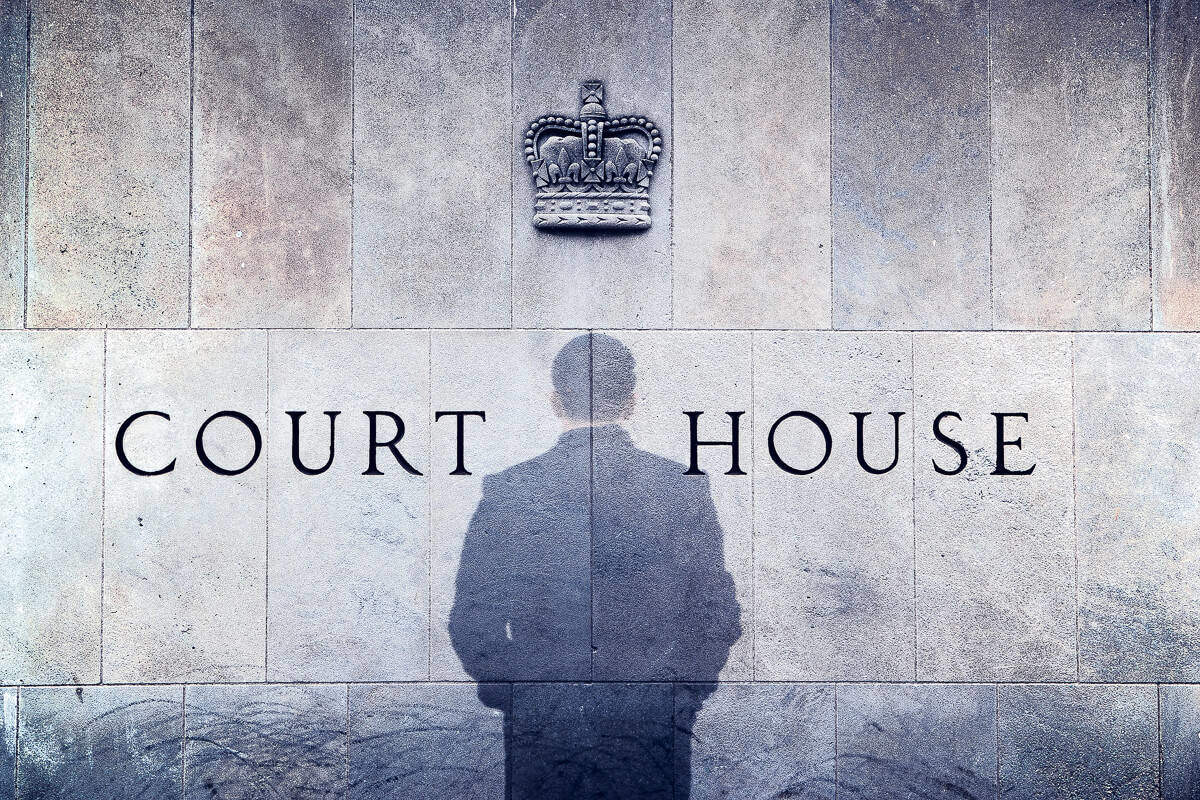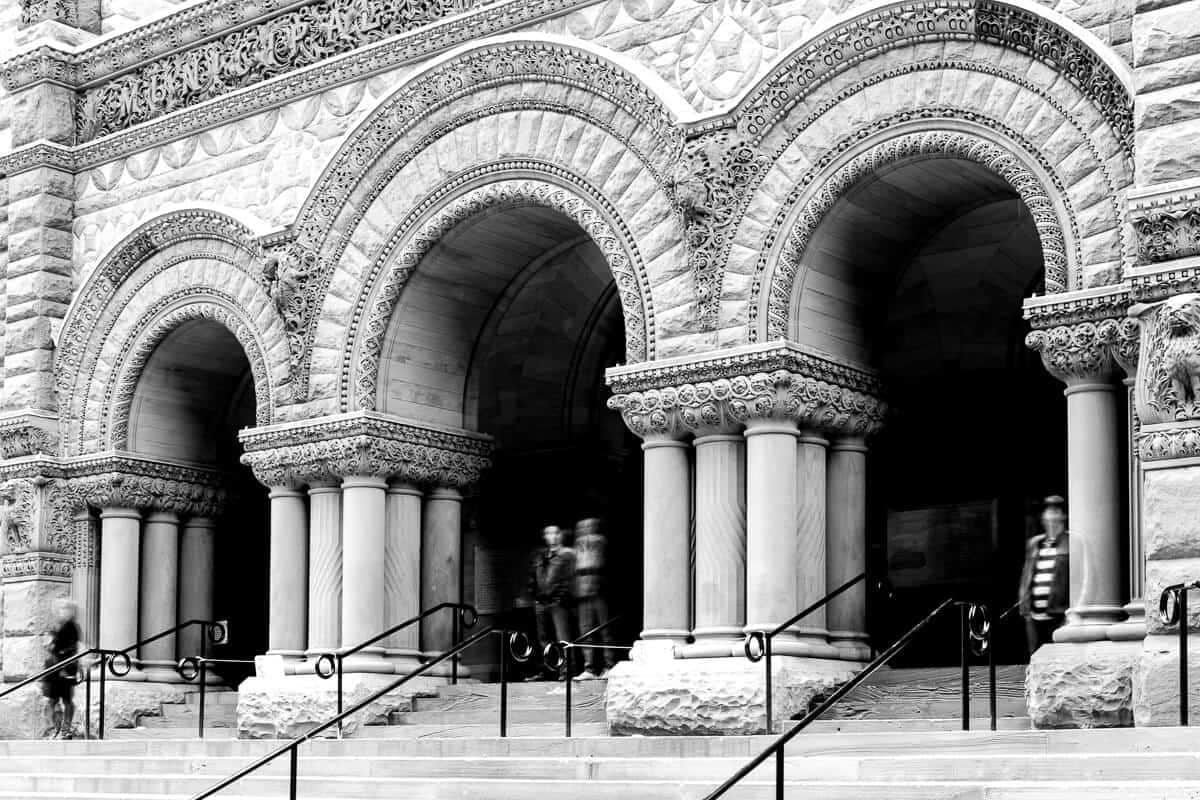We are Groia.
“What’s an advocate?”
In part, this is the question that the Supreme Court of Canada will have to answer after granting leave in the case of Groia vs. The Law Society of Upper Canada.
For Canadian litigators, this will be one of the most important decisions in decades as it will define the ethical limits of “zealous advocacy”, how far it can be advanced, and what conduct is appropriate in pursuing causes and verdicts on behalf of our clients.
As Mr. Groia himself stated (in the article linked above):
“…the issues that go squarely to freedom of expression of lawyers, how do we best protect clients, and is it right that lawyers be looking over their shoulders for fear they’ll be the next Joe Groia?”
When we reflect as lawyers, especially litigators, the answer is that (in our own ways) we are all Joe Groia.
The advocate as “Freedom’s Champion”

In 1999, defence counsel Alan Gold wrote:
The role of defence counsel is an integral and crucial element of the fundamental constitutional principle called “the rule of law.” Like the independence of the judiciary, a democracy founded on the rule of law must have an independent criminal defence bar or it will not survive as a democracy and the jails will fill with thousands of Morin’s and Milgaard’s. It is why undemocratic regimes do not just install corrupt judges but also decimate the independent defence bar to silence freedom’s voice. It is why the criminal defence bar has been called “freedom’s champion.”
Like many defence lawyers before him, Mr. Groia took on a very unpopular client and case.
In 1999, the climate of prosecution was backed by scandal and fraud on Canadian trading markets. The treasure was gold, the company was Bre-X, and the villain was John Felderhof.
Mr. Felderhof was alleged to have engaged in insider trading and subsequently prosecuted as the lone accused under sections 76 and 122 of the Securities Act, R.S.O. 1990, c. S.5. Joseph Groia acted for Mr. Felderholf in an highly acrimonious, disjointed, and heavily contentious trial that spanned over several years. During this course, counsel for the Ontario Securities Commission (the OSC) complained to the Court about Mr. Groia’s conduct.
Unsatisfied with the insufficient corrective measures by the trial judge, the OSC sought an order by a reviewing Court to have the trial judge removed.
As set out in the Factum of the Appellant (Groia) to the Law Society Appeal Tribunal:
The reviewing courts concluded that Justice Peter Hryn (“Justice Hryn” or the “trial judge”) had managed the trial patiently, even-handedly and with scrupulous judicial neutrality. Without deciding issues of professional misconduct, which were not before them, and without a defence from Mr. Groia, who was not a party, the reviewing courts, in obiter, were critical of Mr. Groia’s conduct, as well as the conduct of counsel for the OSC.
…
Justice Campbell was critical of Mr. Groia’s (undefended) conduct, but not only Mr. Groia’s conduct. Illustrating his observation that there was no “monopoly over incivility or rhetorical excess”, Justice Campbell noted that OSC counsel, Mr. Naster, had inappropriately challenged Justice Hryn’s rulings and Mr. Code had characterized a submission of Mr. Groia’s as a “bald-faced lie”. Mr. Code also made a submission about Mr. Groia in open court which was quoted in a national paper shortly after 9/11: “He’s like someone who drops a bomb and runs.” Mr. Naster was criticized by Justice Campbell for overreacting to Mr. Groia’s arguments, including Mr. Naster’s statement in court that he was being “shafted, big time” (para 25)
Moving forward, it appears Mr. Groia accepted this criticism. His complained of conduct ceased. During this time, no complaint was made to the acting regulatory body of Ontario lawyers – Law Society of Upper Canada.
The trial continued and in the end, Mr. Felderhof was found not guilty of all nine counts alleged. The case ended in exoneration and vindication for Mr. Felderhof; for Mr. Groia, the story of vilification (and perhaps vindication) of his advocacy had just begun.
Advocacy on trial.
The Bre-X case was described as “the most notorious saga in Canadian mining history. Bre-X claimed it had discovered huge amounts of gold in the Busang region of Indonesia.The company’s shares soared from penny stockstatus to more than $200 a share.”
The acquittal of Mr. Felderhof, and billions of dollars lost in investments, was not received well by the public.
At the time of acquittal, the OSC advised the CBC that “These were serious charges and it was appropriate to bring them before the court…” and that “We will review the decision and consider our next steps.” In August of 2007, without any explanation, the OSC advised that despite everything, they would not appeal the conviction of Mr. Felderhof.
The largest case in Canadian Securities protection came to a end. However, the case for Mr. Groia continued.
In 2009, the Law Society began a disciplinary proceeding against Mr. Groia (notably not against the OSC counsel who were subject to similar criticism for incivility by Campbell J.)
The Law Society found that he had engaged in professional misconduct as a result of his advocacy at trial. He unsuccessfully appealed to the Law Society Appeal Panel and costs were awarded against him. Mr. Groia appealed further to the Divisional Court, then to the Court of Appeal of Ontario – both appeals were also dismissed.
Which brings us to the present day and the granting of leave by the Supreme Court of Canada to decide the question noted above “What is an advocate?”
What is our role? What are our limits? How far can we go in zealously pursuing the interest our clients while balancing our obligations to the Court and our respective regulatory bodies?
What then, is an advocate?

Every Canadian lawyer has their own views on how this decision should end, and what it means to zealously defend our clients.
For me, the decisions and of the Law Society, and the Court decisions that follow it missed the mark of what it means, and more importantly, what is required of an advocate.
An advocate tries to be civil, but we live in a world where at times, civility must yield to issues that are far more important.
Civility is a nebulous concept. It is one easily misaligned with improper dissent or disruption even if that concordance is derivative from the pursuit of justice. We try our best as advocates to rise above, to be civil, but at times the issue is so controversial or opposed that the mere objection to it can be characterized as uncivil itself.
It must not be forgotten that some of the greatest accomplishments in the struggle for human rights have been marred by disruption of far greater sins than incivility. While it is true that human rights is not the issue as it relates to Mr. Felderhof, but the means in which he obtained his acquittal are synonymous with the means in which equality and equity is achieved for others.
All that said, being “civil” in court is in 99.9% of the time the most effective strategy for persuasion.
However, there are two major concerns that I have about the Groia decision and the seeming paramountcy of “civility”:
First, “civility” is concept that can through its ambiguity be easily used to invalidate and change the range of permissible advocacy.
I am quite sure that many (particularly in the public) would characterize Ms. Henein’s advocacy as “uncivil” or abusive in the Ghomeshi trial even though there could be nothing further from the truth. This ambiguity of “civility” is highly susceptible to this very sort of mischaracterization and politicized pressure that is routine in cases of high public interest and controversy. It is all too easy to conflate the notion of “incivility” with uncompromising and effective defence strategies and this is a major concern in the decision of Groia that affects all lawyers.
Secondly, the swords that an advocate chooses to live or die by is theirs and theirs alone. Mr. Groia decided that whatever he did was necessary to defend his client (successfully) and fulfill his duties as counsel.
Perhaps it could have been done civilly, perhaps not. Maybe it works before some judges, and not others. However, lawyers, should not be playing arm-chair quarterbacks to how a case ought to be approached as it is the lawyer themselves that must face the consequences of their decisions for better our worse. Short of abusive conduct the Courts cannot handle (or lies outside their jurisdiction), lawyers and the regulatory bodies that govern us should stay out of “incivility” that occurs within the Courts.
It cannot be lost upon us that the goal of advocacy is justice, not civility.

Immigration lawyers fighting the injustice of the recent executive orders are not “civil” in the minds of the present administration. If anything, they are engaged in civil disobedience, for they are advocates. They are disruptive forces against what is perceived by many as injustice and unlawful acts. They do so not for the sake of civility, but for the sake of what is right and what is in the best interest of their clients and the injustice that is forced upon them.
The list of history’s most important trials is long but few of them would be described as “civil”.
If anything, the most meaningful and pivotal trials and accomplishments of legal advocacy in history were filled with acrimony, dissent, and controversy. To name a few: Roe vs. Wade, Sacco Vanzetti Massachusetts v Bartolomeo, the Scopes (monkey) trial, the Rosenberg trial, (Hurricane) Carter trial, O.J. Simpson
Which one, of any of these would be primarily characterized as “civil”?
For it is justice that must prevail, nothing more or less. Even as the Law Society’s motto itself holds: “Let Right Prevail” Civility is simply a desired, but not necessary means to achieve it.
So what then is an advocate? In my view, it is someone who says what needs to be said, argues what needs to be argued, settles what needs to be settled. It is someone who pursues justice, and only justice, though the heavens may fall. (Deuteronomy 16:20).
This is the advocate that Joe Groia was and is. This is the advocate we all are at our best of times. Our clients deserve this as does the justice system – anything less and the trisymmetrical balance will topple.
I will say it again, civility is a means to this end; it is not the end itself. Civility is an effective and desired tool of advocacy, it is not the goal.
When those means are unobtainable, or must be compromised, or can’t be corrected – they can be afforded to take a secondary role to the goal of justice that supersedes all. Civility should not and can not usurp the very goal of the advocate to pursue what is right, what is just.
Fortunately, I am confident that the Supreme Court of Canada will side with Mr. Groia in deciding what it means to be an advocate in Canada.
Let’s hope, as there may never be a more important time in recent human history where advocates like Mr. Groia are needed most in the tumultuous and uncertain years ahead.






